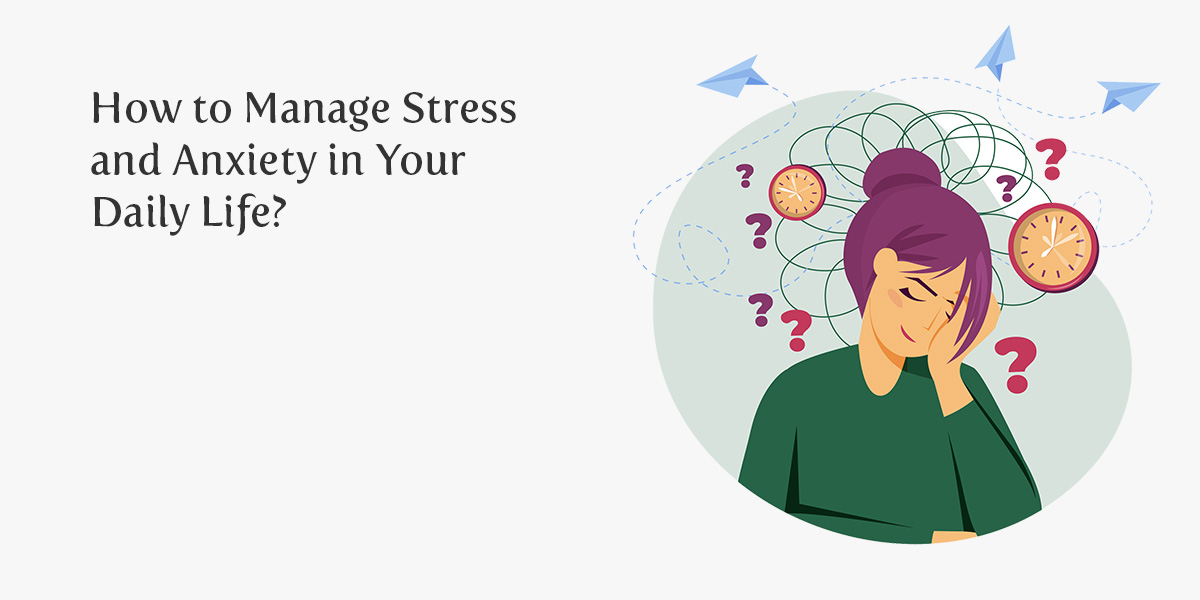What is stress?
Stress is a natural and physiological response that our bodies experience when we encounter challenging or demanding situations. It is the body’s way of preparing itself to cope with perceived threats or pressures. While stress can sometimes be beneficial in motivating us to perform better, excessive or chronic stress can have adverse effects on our physical and mental well-being. In our fast-paced and modern lives, stress has become a common occurrence, affecting people of all ages.
What is anxiety?
Anxiety, on the other hand, is a more specific emotional response characterized by feelings of fear, worry, and unease. Unlike stress, which is often tied to a particular event or situation, anxiety can persist even in the absence of an immediate threat. It is a more long-term state of apprehension and can be triggered by various factors, including stress itself. Anxiety can manifest as generalized anxiety disorder (GAD), panic disorder, social anxiety, or specific phobias, impacting an individual’s daily life and well-being.
How do stress and anxiety manifest themselves?
Stress and anxiety can manifest themselves in a variety of physical, emotional, and behavioral ways. Some common manifestations include:
- Increased heart rate and palpitations
- Rapid breathing or shortness of breath
- Muscle tension and headaches
- Digestive issues such as stomach aches or irritable bowel syndrome (IBS)
- Racing thoughts and excessive worrying
- Restlessness and difficulty concentrating
- Sleep disturbances, including insomnia or nightmares
- Avoidance of situations that trigger anxiety
- Irritability and mood swings
How Can Stress And Anxiety Affect Your Daily Life?
Stress and anxiety, when left unmanaged, can significantly impact an individual’s daily life and overall well-being. Some effects include:
- Reduced productivity and difficulty concentrating on tasks
- Strained relationships due to irritability and emotional distress
- Physical health issues like weakened immunity and cardiovascular problems
- Interference with sleep patterns, leading to fatigue and low energy levels
- Impaired decision-making abilities and reduced problem-solving skills
How to Manage Stress and Anxiety in Your Daily Life
Managing stress and anxiety is essential for maintaining a balanced and healthy lifestyle. Here are some effective strategies to cope with stress and anxiety:
- Identify your stressors: Recognize the sources of stress and anxiety in your life to address them more effectively.
- Use relaxation techniques: Practice deep breathing, meditation, or mindfulness to calm your mind and body.
- Get regular exercise: Physical activity releases endorphins, which can improve mood and reduce stress.
- Get enough sleep: Prioritize quality sleep to support your overall well-being and stress management.
- Eat a healthy diet: Nourishing your body with nutritious foods can positively impact your mood and stress levels.
- Spend time with loved ones: Seek support from friends and family, and engage in activities that bring joy.
- Learn to say no: Set boundaries and avoid taking on more than you can handle.
- Seek professional help: If stress and anxiety become overwhelming, consider consulting a mental health professional.
Additional Tips to Manage Stress and Anxiety
- Take breaks throughout the day: Give yourself short breaks to relax and recharge during busy periods.
- Avoid caffeine and alcohol: These substances can exacerbate feelings of anxiety.
- Learn to manage your time effectively: Prioritize tasks and avoid procrastination.
- Set realistic goals: Avoid setting unrealistic expectations for yourself.
- Be kind to yourself: Practice self-compassion and avoid self-criticism.
Conclusion
Managing stress and anxiety is crucial for maintaining a healthy and fulfilling life. By implementing effective strategies and seeking support when needed, individuals can better cope with the challenges they face and improve their overall well-being. Remember that everyone’s journey is unique, and it’s okay to seek help from professionals to navigate through difficult times. Prioritize self-care, and remember that taking small steps can lead to significant improvements in managing stress and anxiety.









Post a Comment